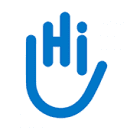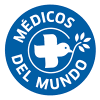Trainer Module Assistive Devices and Clinical Supervision
Job Description
TERMS OF REFERENCE
Trainer Module Assistive Devices and Clinical Supervision
Trainer Module Assistive Devices and Clinical Supervision
Access to physical rehabilitation services for persons with disabilities in the West Bank
Planned Date: March 2011
1-Project background:
HI has been operating in Palestine since 1996 and has developed relationship with several disability stakeholders. According to the Palestinian Central Bureau of Statistics there are around 4,048,403 million Palestinian living in the oPt (2,513,283 million in West Bank and 1,535,120 million in Gaza strip), 40.8% of them (15-19) years of age, 29.4% of them (15-29) years of age and 59.2% of them (20-29) years of age. According to general estimations by WHO, between 7-10% of a given population would have some kind of disability; in the Palestinian Territories, this implies that the figure would be around 284,000 – 404,000 people. The last figure from Palestinian Statistics in 2009 gives a ratio of 5.3% for persons with at least one type of impairment which implies that the Palestinian estimation could be around 215,000 people. Since the starting of its operations in oPt then, HI has conducted regular assessments in order to identify needs of PWDs in.
The findings of the last assessments are described below:
-Lack of information of PWDs on services available and how to access them.
-Lack of quality of and appropriateness of assistive devices.
-Low quality of rehabilitation services not addressing the users' demands.
-Limited accessibility to rehabilitation services for PWDs.
-Increased number of PWDs worsened by deterioration of the socio-economical situation in the oPt.
Project Specific Objective:
Persons with disabilities can access holistic physical rehabilitation services in the West Bank
-Expected result 1:
The physical rehabilitation centres operating in the West Bank deliver holistic services.
-Expected result 2:
PWDs are able to obtain a diverse range of adapted to their specific needs and affordable assistive devices (AD's)
-Expected result 3:
Accessible transportation options facilitate PWDs' access to rehabilitation services
-Expected result 4:
PWDs, their families and all relevant stakeholders have information about the existing rehabilitation services
2-Scope of work
In order to reach the project specific objective, a number of training modules will be implemented. One of the implemented activities is the technical training for graduate physiotherapists (PT's) and occupational therapists (OT's) on assistive devices. In coordination with HI Project Manager and Technical advisor, the trainer will design the training material and the lesson plan for the training and implement the training. The work will be realized, keeping in mind the general objective of the project as well as HI philosophy and training approach. After the implementation of theoretical and practical training sessions of the Assistive Devices module, field visits to the participants by a clinical supervisor will be planned. The visits will enhance the impact of the training and also be a tool to monitor and evaluate the overall impact out of it. The role of the clinical supervisor is that of a facilitator, helping the participant to reflect on his skills. He will also check on the progress of the follow-up task and evaluate it. In coordination with HI’s technical advisor, the clinical supervisor will plan the field visits and report the results of the impact of the training to the technical coordinator and the project manager.
3-Specific objectives of the training
-Design and provide teaching material for module on assistive devices
-Provide the participants with knowledge and skills on assistive devices
-Provide the participants with basic knowledge on transfer of newly acquired skills to other health-professionals
-Evaluates output of the training sessions
-Draft follow-up task participants.
-Report on the results of the impact of the training.
4-Specific objectives of the clinical supervision
-Evaluate how the participants apply the new knowledge and skills they acquired, by means of giving feedback on and grading the follow-up task.
-Get an overview of the problems participants run into when using the new knowledge and skills and define possible solutions.
-Evaluate lessons learned and the added value of the training.
-Make a recommendation for follow-up regarding the specific topic of the module.
-Help identify, as well, problems in carrying out the training skills related to the managerial behavior of the centers where the service is given.
5-Training expected output:
At the end of training the 30 participants will be able to:
-Identify, prescribe and modify assistive devices (mobility aids and aids for activities daily living (adl) for a person with a disability.
-Prescribe the appropriate assistive device (mobility aid and / or adl aid) taking into account the wishes and demands of the user.
-Apply appropriate seating and positioning techniques for a person with disability taking into consideration:
-The specific consequences of neurologic impairments (abnormal movement and posture pattern / positions as a consequence of brain damage, spinal cord injury, spina bifida, muscular diseases, etc.) and / or orthopedic impairments (severe scoliosis, contractures, etc.)
-Find a balance between the functional and medical requirements.
-Make basic adaptations to the wheelchair in order to improve the seating and positioning; straps, wedge, cushions, tabletop etc.
-To give training on use of the specific assistive device to the user and/or his/her family.
-Evaluate the evidence base for seating and positioning techniques.
-Transfer their expertise (knowledge and skills) on assistive devices to their assistants, by using the HI basic training module on ADs.
-Schedule field visits (total max. 23 days)
-Report on training (evaluation, follow-up task, lessons learned, recommendations)
6-Clinical supervision expected output:
-Two field visits per participant.
-Clear and constructive feedback given to the participants on the use of the newly acquired skills.
-Filled in feedback form for each of the participants.
-Evaluation report on result follow-up task of all the participants, the impact of training and recommendations for future trainings.
7-Activities
-Working in close collaboration with HI's technical advisor and project manager.
-Providing the training for ADs within the frame of the whole training curriculum in the project designed by Handicap International.
-Designing and implementing of theoretical and practical training sessions for around 15 occupational therapists and around 15 physiotherapists on assistive devices, especially on seatening and positioning.
-Draft a lesson plan
-Ensure that the content and the lesson plan are validated by HI technical advisor
-Reporting on the results of the training
-Design an evaluation for the technical training sessions which will be used to assess the impact of the training.
-Draft a plan on two follow up visits to the work-site (one full day visit and one ½ day visit) for each participant.
-Provide feedback and support to the participants to reflect on their activities and apply the knowledge from the training in the day to day practical work in the field. Identify and reinforce effective actions.
-Reporting on the results and impact of the training.
8-Profile of the Trainer/Clinical supervisor
-Higher education in Occupational Therapy field or closely related field (Master Degree or PhD).
-Knowledge and experience on assistive devices, especially regarding seatening and positioning.
-Experienced lecturer at university and experience in training skills to occupational therapists and physiotherapists
-Five years of relevant work experience, preferable in the field of physical rehabilitation and disability issues
The consultant is expected to have a sense of personal security, be aware of the security situation and take respective action, especially when approaching check points.
-Good social and communication skills, able to respect confidentiality.
-Excellent English and Arabic language skills (reading, writing and speaking).
-Excellent reporting skills.
-Good relationship with the physical rehabilitation centers in the West Bank
9-Relation with the HI project team
The consultant will work in close collaboration of HI technical advisor and report to HI Project Manager.
10-Main Expected Deliverables
-Lesson schedule 2 training days
-Teaching materials
-Lessons implemented
-Report on training (evaluation, lessons learned, and recommendations).
-Report on the clinical supervision (field visits).
11-Time frame
-1 working day to liaise with HI technical Advisor
-2 working days.(conducting training)
-23 days working days for clinical field supervision
-1 working day for report
Interested candidates may please send their resume with cover letter before the 16th of January 2011 to [email protected].
Planned Date: March 2011
1-Project background:
HI has been operating in Palestine since 1996 and has developed relationship with several disability stakeholders. According to the Palestinian Central Bureau of Statistics there are around 4,048,403 million Palestinian living in the oPt (2,513,283 million in West Bank and 1,535,120 million in Gaza strip), 40.8% of them (15-19) years of age, 29.4% of them (15-29) years of age and 59.2% of them (20-29) years of age. According to general estimations by WHO, between 7-10% of a given population would have some kind of disability; in the Palestinian Territories, this implies that the figure would be around 284,000 – 404,000 people. The last figure from Palestinian Statistics in 2009 gives a ratio of 5.3% for persons with at least one type of impairment which implies that the Palestinian estimation could be around 215,000 people. Since the starting of its operations in oPt then, HI has conducted regular assessments in order to identify needs of PWDs in.
The findings of the last assessments are described below:
-Lack of information of PWDs on services available and how to access them.
-Lack of quality of and appropriateness of assistive devices.
-Low quality of rehabilitation services not addressing the users' demands.
-Limited accessibility to rehabilitation services for PWDs.
-Increased number of PWDs worsened by deterioration of the socio-economical situation in the oPt.
Project Specific Objective:
Persons with disabilities can access holistic physical rehabilitation services in the West Bank
-Expected result 1:
The physical rehabilitation centres operating in the West Bank deliver holistic services.
-Expected result 2:
PWDs are able to obtain a diverse range of adapted to their specific needs and affordable assistive devices (AD's)
-Expected result 3:
Accessible transportation options facilitate PWDs' access to rehabilitation services
-Expected result 4:
PWDs, their families and all relevant stakeholders have information about the existing rehabilitation services
2-Scope of work
In order to reach the project specific objective, a number of training modules will be implemented. One of the implemented activities is the technical training for graduate physiotherapists (PT's) and occupational therapists (OT's) on assistive devices. In coordination with HI Project Manager and Technical advisor, the trainer will design the training material and the lesson plan for the training and implement the training. The work will be realized, keeping in mind the general objective of the project as well as HI philosophy and training approach. After the implementation of theoretical and practical training sessions of the Assistive Devices module, field visits to the participants by a clinical supervisor will be planned. The visits will enhance the impact of the training and also be a tool to monitor and evaluate the overall impact out of it. The role of the clinical supervisor is that of a facilitator, helping the participant to reflect on his skills. He will also check on the progress of the follow-up task and evaluate it. In coordination with HI’s technical advisor, the clinical supervisor will plan the field visits and report the results of the impact of the training to the technical coordinator and the project manager.
3-Specific objectives of the training
-Design and provide teaching material for module on assistive devices
-Provide the participants with knowledge and skills on assistive devices
-Provide the participants with basic knowledge on transfer of newly acquired skills to other health-professionals
-Evaluates output of the training sessions
-Draft follow-up task participants.
-Report on the results of the impact of the training.
4-Specific objectives of the clinical supervision
-Evaluate how the participants apply the new knowledge and skills they acquired, by means of giving feedback on and grading the follow-up task.
-Get an overview of the problems participants run into when using the new knowledge and skills and define possible solutions.
-Evaluate lessons learned and the added value of the training.
-Make a recommendation for follow-up regarding the specific topic of the module.
-Help identify, as well, problems in carrying out the training skills related to the managerial behavior of the centers where the service is given.
5-Training expected output:
At the end of training the 30 participants will be able to:
-Identify, prescribe and modify assistive devices (mobility aids and aids for activities daily living (adl) for a person with a disability.
-Prescribe the appropriate assistive device (mobility aid and / or adl aid) taking into account the wishes and demands of the user.
-Apply appropriate seating and positioning techniques for a person with disability taking into consideration:
-The specific consequences of neurologic impairments (abnormal movement and posture pattern / positions as a consequence of brain damage, spinal cord injury, spina bifida, muscular diseases, etc.) and / or orthopedic impairments (severe scoliosis, contractures, etc.)
-Find a balance between the functional and medical requirements.
-Make basic adaptations to the wheelchair in order to improve the seating and positioning; straps, wedge, cushions, tabletop etc.
-To give training on use of the specific assistive device to the user and/or his/her family.
-Evaluate the evidence base for seating and positioning techniques.
-Transfer their expertise (knowledge and skills) on assistive devices to their assistants, by using the HI basic training module on ADs.
-Schedule field visits (total max. 23 days)
-Report on training (evaluation, follow-up task, lessons learned, recommendations)
6-Clinical supervision expected output:
-Two field visits per participant.
-Clear and constructive feedback given to the participants on the use of the newly acquired skills.
-Filled in feedback form for each of the participants.
-Evaluation report on result follow-up task of all the participants, the impact of training and recommendations for future trainings.
7-Activities
-Working in close collaboration with HI's technical advisor and project manager.
-Providing the training for ADs within the frame of the whole training curriculum in the project designed by Handicap International.
-Designing and implementing of theoretical and practical training sessions for around 15 occupational therapists and around 15 physiotherapists on assistive devices, especially on seatening and positioning.
-Draft a lesson plan
-Ensure that the content and the lesson plan are validated by HI technical advisor
-Reporting on the results of the training
-Design an evaluation for the technical training sessions which will be used to assess the impact of the training.
-Draft a plan on two follow up visits to the work-site (one full day visit and one ½ day visit) for each participant.
-Provide feedback and support to the participants to reflect on their activities and apply the knowledge from the training in the day to day practical work in the field. Identify and reinforce effective actions.
-Reporting on the results and impact of the training.
8-Profile of the Trainer/Clinical supervisor
-Higher education in Occupational Therapy field or closely related field (Master Degree or PhD).
-Knowledge and experience on assistive devices, especially regarding seatening and positioning.
-Experienced lecturer at university and experience in training skills to occupational therapists and physiotherapists
-Five years of relevant work experience, preferable in the field of physical rehabilitation and disability issues
The consultant is expected to have a sense of personal security, be aware of the security situation and take respective action, especially when approaching check points.
-Good social and communication skills, able to respect confidentiality.
-Excellent English and Arabic language skills (reading, writing and speaking).
-Excellent reporting skills.
-Good relationship with the physical rehabilitation centers in the West Bank
9-Relation with the HI project team
The consultant will work in close collaboration of HI technical advisor and report to HI Project Manager.
10-Main Expected Deliverables
-Lesson schedule 2 training days
-Teaching materials
-Lessons implemented
-Report on training (evaluation, lessons learned, and recommendations).
-Report on the clinical supervision (field visits).
11-Time frame
-1 working day to liaise with HI technical Advisor
-2 working days.(conducting training)
-23 days working days for clinical field supervision
-1 working day for report
Interested candidates may please send their resume with cover letter before the 16th of January 2011 to [email protected].
Jobs.ps, Ltd. All Rights Reserved.
Job Requirements
Job Details
Job Title
Trainer Module Assistive Devices and Clinical Supervision
Deadline
01 - Jan - 2011
Location
Ramallah
Job Type
Full time
Position Level
Mid Career
Degree
Bachelor's degree
Experience
No Experience
Category
Healthcare & Community
Application Instructions
when applying to a job online , never give your
credit card or bank account information,
or perform any sort of monetary transaction to a prospective employer. For your privacy and protection:
Latests Jobs By
Humanity & Inclusion Palestine
Job Title
Date Posted
Atlas Transport Officer
Gaza Strip
15, Apr
عامل يومي - مناول
Gaza Strip
25, Feb
حارس مخزن - Warehouse Guard
Gaza Strip
25, Feb
Rehabilitation Project Manager
Gaza Strip
19, Feb
Warehouse Supervisor
Gaza Strip
17, Feb
Storekeeper
Gaza Strip
17, Feb
Project Supervisor
Gaza Strip
17, Feb
Procurement & Facility Supervisor
Gaza Strip
8, Feb







